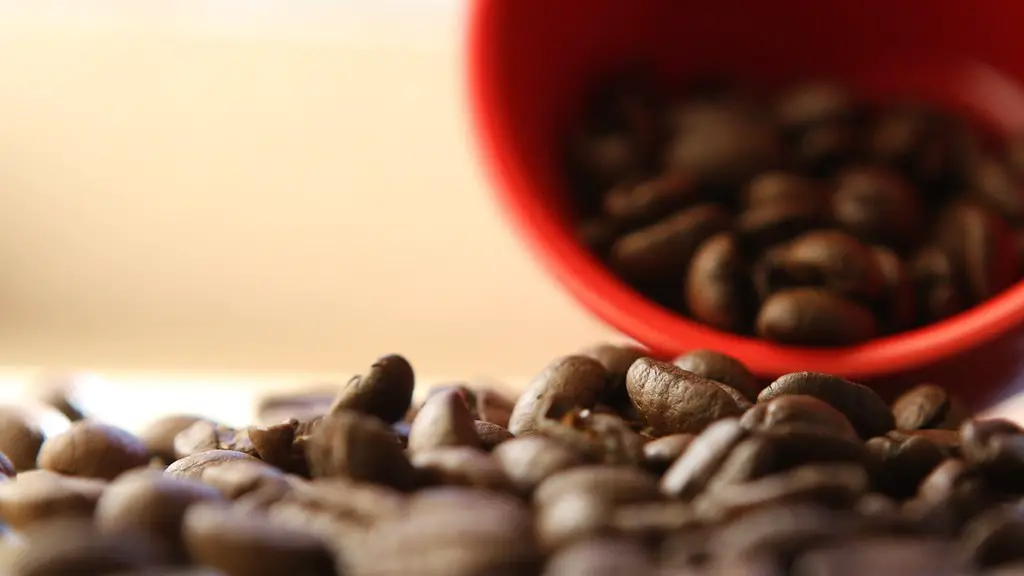Whether drinking coffee before a run is beneficial or not depends on personal preferences, body type, and the type of run. For some, coffee helps their running performance. For others, it can cause stomach problems and an unpleasant jittery feeling. Digital health coach, Daniel Memon, suggests drinking coffee in moderation before a run.
According to nutritionist, Anne Maritza Caceres, caffeine has a positive effect on the body when exercising. According to a study from the Exercise and Sport Nutrition Laboratory, it increased effort levels, decreased pain and increased metabolism. Caffeine can also improve cognitive function, allowing you to focus more and maintain concentration during the run.
While caffeine can boost performance, athletes must be cautious. Too much caffeine can cause dehydration and stomach problems. A good way to ensure the right amount is to drink 1-2 cups of coffee before a run, depending on the individual. According to sports nutritionist Marie Spano, if a person drinks too much coffee they could risk feeling dizzy and jittery during the run, which can lead to slower times and may cause them to give up.
Additionally, people should pay attention to the type of coffee they drink before a run. It is advisable to consume black coffee with little to no added ingredients. Cappuccinos or lattes with added syrup, sugar or cream can cause dehydration and slow digestion, which can affect a runner’s performance.
It’s important to be aware that drinking too much coffee before a run can be detrimental. Dehydration, digestive problems, and slower running pace are all potential side effects. Moreover, coffee may not provide the same advantages for everyone. People with a higher caffeine sensitivity may not receive the same benefits that coffee-drinkers do.
Therefore, it’s important to experiment with different types and amounts of coffee to see what works best for you. Furthermore, it’s recommended that you avoid coffee right before a run, as it can cause problems like nausea and a sudden energy spike followed by fatigue.
Overall, if you enjoy coffee and want to consume it before a run, do so in moderation. Monitor your body when drinking coffee to check for any unwanted side effects. If you don’t feel any negative effects, then it is acceptable to drink coffee before a run.
Effects on Performance
Drinking coffee before running can have a positive effect on performance. According to a study from the Exercise and Sport Nutrition Laboratory, caffeine increased effort levels, decreased pain and increased metabolism. Furthermore, caffeine can help athletes to focus and stay alert during their run, allowing them to achieve better times.
A study conducted in 2017 by the National University of Singapore showed that caffeine had the most effect on athletes who exercise in the morning. Participants felt sharper and had better reaction times when having consumed caffeine before their run. This suggests that caffeine is most beneficial to athletes who run in the morning, when they are more likely to feel sluggish and lack energy due to the early start.
Nevertheless, people should be aware that different types of coffee have different caffeine amounts. According to nutritionist, Michael Compton, darker roast coffees have higher amounts of caffeine than lighter roasts. Therefore, it is advisable to pay attention to the type of coffee and the quantity consumed to maximise energy and performance boosts.
To sum up, caffeine is beneficial to athletes who exercise in the morning and wish to increase their performance during the run. Different types of coffee may provide different amounts of caffeine, so it’s important to be aware of the kind of roast and the quantity consumed for optimum effect.
Potential Risks
Coffee is a stimulant and can cause negative effects on the body. Physiologist Dr. Kenneth L. Koch suggests that athletes should consume coffee in moderation before a run. Too much caffeine can cause dehydration and stomach problems, as well as a jittery feeling which can affect the individual’s performance.
Individuals should also be aware of the type of coffee that they drink. Cappuccinos and lattes with added syrup, sugar or cream can cause dehydration and slow digestion, which can affect a runner’s performance. Milk and cream added to a cup of coffee can cause bloating or be too heavy for some runners.
Moreover, each individual is unique and some people may be more sensitive to caffeine than others. For individuals with higher caffeine sensitivity, coffee could have the opposite effect of draining energy instead of boosting it. People should know their limits and be aware that coffee may affect them differently.
To conclude, it is important to regulate the amount of coffee consumption before running and to be aware of the type of coffee to prevent negative side-effects. Individuals should also be aware of their body’s response to caffeine and consume it in moderation to minimise any unwanted health risks.
Advisable Timing
According to digital health coach, Daniel Memon, coffee should be consumed about an hour before the run. This allows enough time for the caffeine to kick in before the actual running, providing a boost of energy.
Additionally, sports nutritionist Marie Spano suggests drinking coffee before a run to increase alertness and performance. The timing of the coffee intake is very important as caffeine won’t be beneficial if consumed too early or too late. Caffeine has a half-life of approximately two hours, meaning it will be gradually released over this time.
In order to make the most of the effects of caffeine before running, it is best to time it right and consume the coffee around one hour before the run. This will ensure energy levels stay steady throughout the run and prevent any energy spikes or crashes, which could potentially affect performance.
In conclusion, timing is key when consuming coffee before running. It is important to be aware of how your body responds to caffeine, and how long it takes for the caffeine to fully kick in. Consuming coffee one hour before a run is safe for most people and can help boost energy and improve the performance during the run.
Creating Habits
Even though drinking coffee may be beneficial to runners, it is important to remember that it should not become a habit. It is important to give the body time to rest and avoid developing a dependency on caffeine in order to function.
According to nutritionist Robert Herbst, caffeine can be easily over-consumed and it’s not recommended to have more than 300-400 milligrams of caffeine a day. Having coffee regularly can lead to dependency which can affect performance in the long run.
It is also important to be aware that caffeine has a diuretic effect, making it more difficult for athletes to stay hydrated during the run. This can lead to slower performance and potential health risks.
To sum up, drinking coffee before a run can be beneficial as it can increase alertness, energy levels and cognitive function. It is important to be aware of the potential risks of over-consumption and to create healthy habits in order to make the most of the positive effects of coffee. Furthermore, hydration is key when having consumed caffeine and should be taken into account.
Consult a Professional
Even after considering all the potential benefits and risks of drinking coffee before a run, it is important to consult with a professional to make sure that it is a good idea for your individual body and health.
According to digital health coach Daniel Memon, runners should be aware of their individual reactions to caffeine and its potential risks. It is important to consult with a medical professional before consuming any stimulants to make sure you are healthy enough to handle them.
Furthermore, a professional can advise which type and amount of coffee are right for you, as sensitivity to caffeine varies among individuals. Additionally, they can provide recommendations on the timing and frequency of consumption in order to maximise benefits and minimise risks.
To sum up, consulting with a professional can help athletes to make smart and informed decisions on caffeine consumption before running. Professionals can advise on individual sensitivities to caffeine and provide recommendations on the type and amount of coffee before a run.





